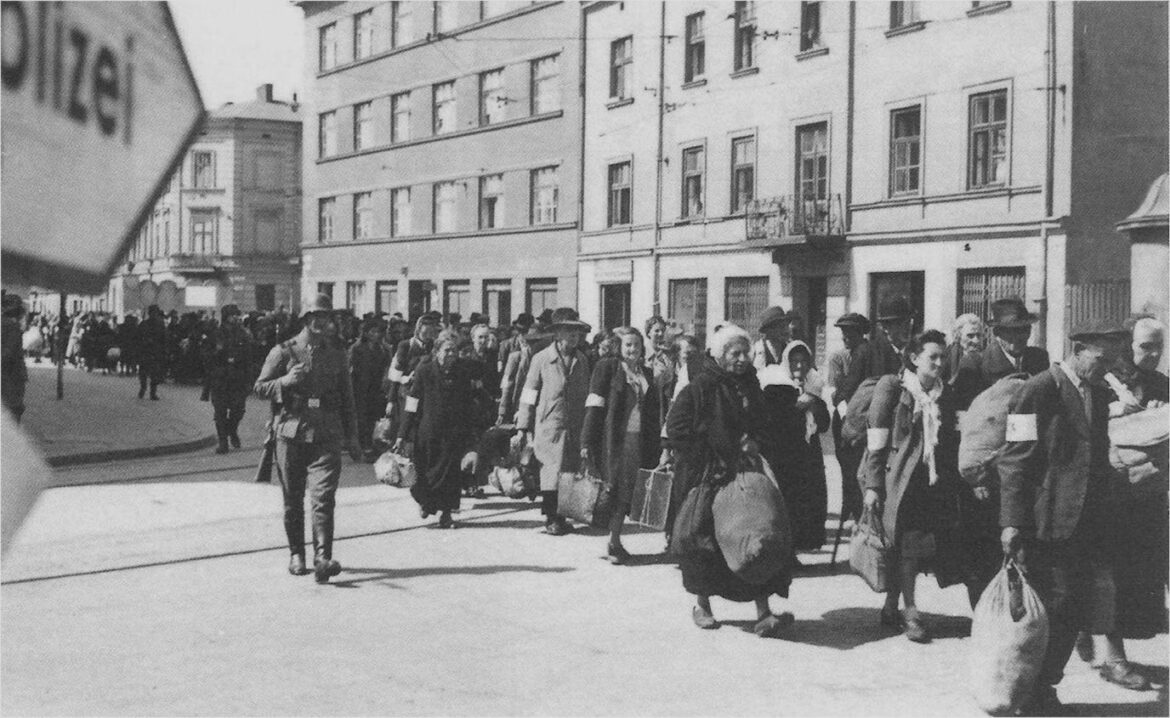Today is the 81st anniversary of the liquidation of the Kraków ghetto, supervised by SS-Sturmbannführer Wilhelm Haase. It was a planned action, part of the German extremist Aktion Reinhardt operation against the Jewish community.
The Krakow ghetto was created on 3 March 1941 from part of the Podgórze district by order of Krakow District Governor Otto Wächter. It occupied an area of 20 hectares, where at least 15,000 Jews were initially confined. Surrounded by barbed wire and a high wall with semicircular shapes resembling Jewish tombstones, the ghetto contained 320 houses (with 3167 living places).
On 15 October 1941, the Governor General Hans Frank issued an order to close the district completely, with the death penalty for trespassing and helping the Jews inside. In May 1942, to reduce the population of the ghetto, the Germans carried out a deportation action, during which around five thousand people were taken to the German extermination camp in Belzec. Again, in October, a further seven thousand people were deported, dividing the ghetto into two parts: for people able to work, and for the unemployed, elderly, and sick.
On 13-14 March 1943, the ghetto area was surrounded by SS, police and Sonderdienst (auxiliary police) units. Approximately eight thousand Jews, recognised as fit for work, were transported to the camp in Plaszow and then sent to the German concentration and extermination camp at Auschwitz. In contrast, two thousand, especially the sick and elderly, were murdered on the spot. Ultimately, almost the entire Jewish community of Krakow was murdered by Germans.
The entire operation was directly carried out by Amon Göth, an Austrian war criminal who was the commandant of the German KL Plaszow, set up on the site of two Jewish cemeteries. After the war, the Polish Supreme National Tribunal sentenced him to death. The sentence was carried out on 13 September 1946 in a prison on Montelupi Street in Kraków. Until the very end, he did not feel guilty for the crimes he had committed, raising an exclamation in honour of Adolf Hitler before his death.





